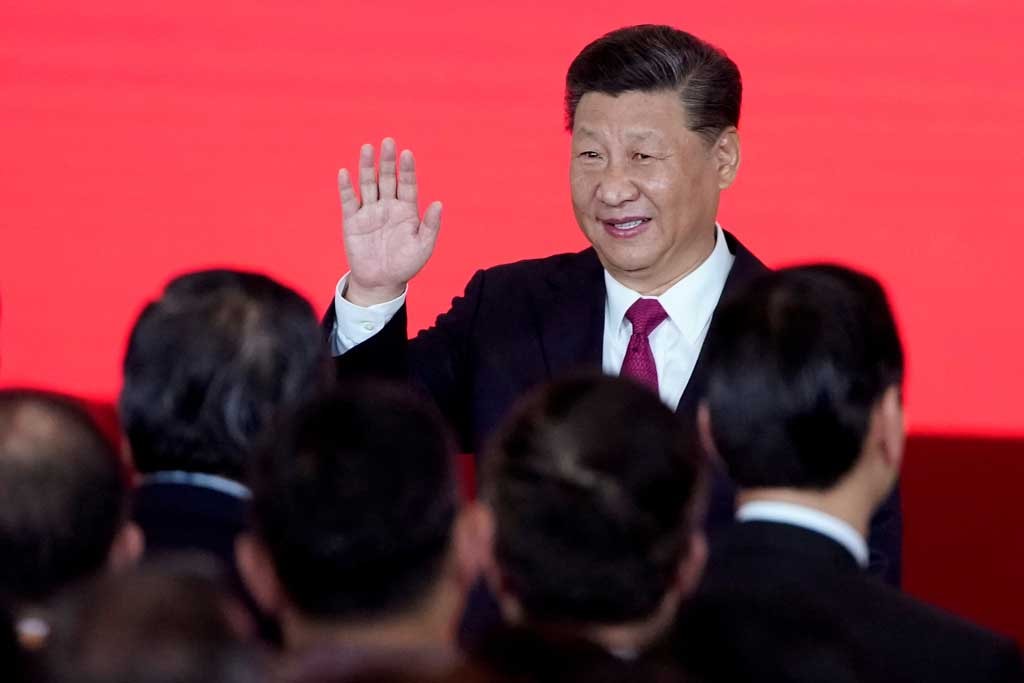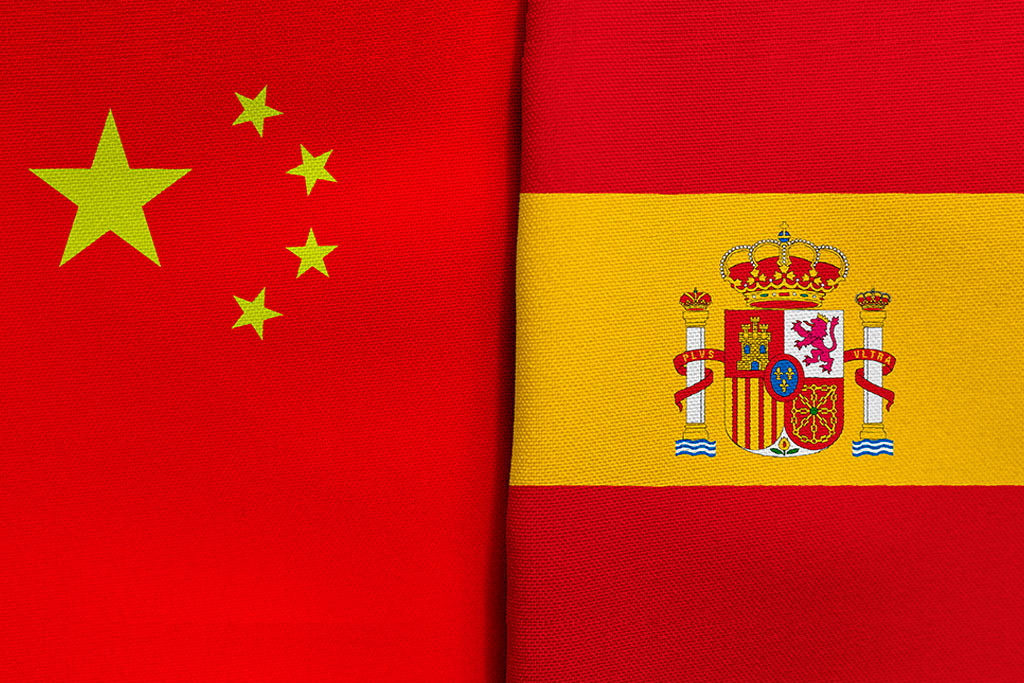Chinese President Visits Spain: Strengthening the Belt and Road Initiative in Europe
(Baonghean) - On November 28, Chinese President Xi Jinping began an official visit to Spain to celebrate the 45th anniversary of the establishment of diplomatic relations between the two countries.
Besides strengthening bilateral relations in the fields of trade and tourism, analysts say an indispensable goal of China during this visit is to strengthen the “Belt and Road” initiative in Europe.
Balance economic relations
Xi Jinping's visit to Spain is the first state visit by a Chinese president in 13 years. According to the schedule, Xi Jinping will meet with King Felipe VI of Spain and hold talks with Prime Minister Pedro Sanchez, who took office last June.
According to the Chinese side's announcement before the visit, the two sides will focus on projects and programs to promote bilateral relations and tourism.
 |
| President Xi Jinping carries the burden of strengthening the “Belt and Road” initiative in Europe. |
To achieve this goal, Mr. Xi Jinping brought along an entourage of many high-ranking officials in the two fields of trade and tourism - who will meet directly with large Spanish businesses and organizations such as BBVA Bank, Telefonica Telecommunications Group, and Repsol Oil and Gas Group.
One thing worth noting in the trade relations between China and Spain is the “reversal” in the course of historical development. Economic and trade cooperation between the two sides began quite early, around the year 1500.
However, this relationship weakened during the 19th century and has only recently been restored. In particular, in the past few years, Spain has strengthened its economic ties with China, with trade, investment and tourism expanding significantly after the financial crisis broke out in Europe.
If in the past, Spain was the one providing China with large loans to facilitate its companies to access the Chinese market, now the capital flow has "reversed" with China being the largest non-European Union (EU) country holding Spanish government bonds.
There are currently around 600 Spanish companies operating in China, but they are mostly small. Meanwhile, in 2016 alone, China invested around 1.7 billion euros in Spain.
Chinese companies also acquired two major Spanish companies, Aritex and Eptisa. Aritex focuses on aviation, automotive and renewable energy, while Eptisa has projects in information technology and transport infrastructure, reflecting Beijing’s desire to acquire high technology for its “Made in China 2025” plan and become a technology manufacturing powerhouse.
In the trade field, the balance is also tilted towards China. Although Spain's exports to China increased by 28.3% in 2017, the country still had a trade deficit of 19.4 billion euros, up 2.3% compared to the previous year. Therefore, in order to balance this trade balance, China has committed to opening up more to Spanish goods and services in the coming time.
The Chinese side hopes that more high-quality Spanish products will appear in the domestic market and that the two sides can strengthen cooperation in the fields of artificial intelligence, 5G communications, smart city development, renewable energy, biotechnology and aerospace technology.
In tourism, Spain is the second most popular tourist destination in the world after France, welcoming more than 700,000 Chinese tourists last year.
Tourism is a key driver of economic growth in Spain, and attracting a larger proportion of the more than 130 million Chinese citizens who travel abroad each year could bring significant financial benefits in the short and long term.
Strengthening the “Belt and Road”
Although the trip was not publicly announced, analysts believe China's more important goal is to seek Spain's support for its Belt and Road initiative.
China’s Belt and Road Initiative is seen as an ambitious project to establish a global trade route. However, in Southeast Asia and some Pacific countries, infrastructure projects funded by China under this initiative are being carefully considered due to concerns about “debt burden”.
Meanwhile, in Europe, many countries in the European Union also have a rather cautious view when receiving investment capital from China. Therefore, China is tending to shift to Southern and Eastern European countries - countries with smaller economies, including some countries such as Spain, Portugal, Hungary...
 |
| China-Spain relations have made much progress in recent times. Photo: Shutter Stock |
Analysts say that compared to neighboring Portugal, the amount of investment that China pours into Spain is much smaller. Therefore, Spain is eager to narrow this gap by building a warmer relationship with China.
Not to mention, Spain is one of the few countries that has supported the “Belt and Road” initiative since its inception with the expectation of making Spain a commercial hub among the countries participating in this initiative.
In addition to subjective desires, there is another reality that makes it impossible for Spain to separate itself from China’s “Belt and Road” initiative. That is, in June 2017, the Chinese shipping company COSCO bought a majority stake in Noatum Port Holdings, a logistics and port operation company in Madrid with a controlling stake of 51%.
Thus, China is likely to participate in controlling major ports in Spain such as Valencia, Bilbao, Barcelona, which means that Spain is automatically part of the “Belt and Road”.
But what Xi Jinping wants more from his visit is a formal commitment from Spain in a document that Spanish media say the country has yet to agree to.
It is a fact that while the Spanish government appears ready to welcome large investments from China, the Spanish public is quite cautious.
A poll conducted by the Elcano Royal Institute showed that many Spaniards have a negative view of Chinese investment. In addition, the European Union's recent agreement on investment screening rules that apply to all member states to prevent transactions that could pose a risk to national security will also "make it difficult" for cooperation between China and Spain.
Therefore, although both China and Spain consider Chinese President Xi Jinping's visit to Spain as "the starting point of a new chapter in bilateral relations", it is clear that both sides will still have many issues to consider in the context of other international relations.
